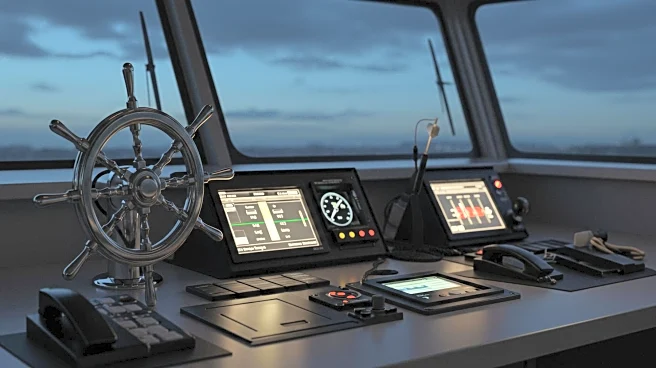What's Happening?
Lloyd’s Register's latest FOBAS Fuel Insight report indicates that global bunker fuel quality has remained stable in the first half of 2025, despite increased fuel diversity and stricter environmental regulations. The report notes issues with high sediments and chemical contamination, alongside a rise in biofuel blends usage. Improved testing and data sharing are aiding shipowners in adapting to cleaner blends and sulphur limits. The uptake of FAME-based biofuel blends is growing, driven by regulatory clarity. The report also highlights a shift towards direct calorific value measurement for better energy content assessment.
Why It's Important?
The stability in ship fuel quality is crucial for the maritime industry as it navigates tighter environmental regulations and fuel diversity. The report underscores the importance of proactive testing and data-driven decision-making in maintaining compliance and quality. The increased use of biofuel blends reflects a shift towards sustainability, aligning with global efforts to reduce carbon emissions. This trend is likely to impact fuel management strategies and operational practices, influencing cost and efficiency in maritime operations.
What's Next?
As the Mediterranean becomes a Sulphur Emission Control Area, ship operators will need to adjust their fuel strategies to comply with the new 0.10% sulphur limit. The industry is expected to continue its transition to low- and zero-carbon fuels, necessitating close cooperation between suppliers and operators. Future developments may include further regulatory changes and advancements in fuel technology, driving innovation and sustainability in maritime operations.











